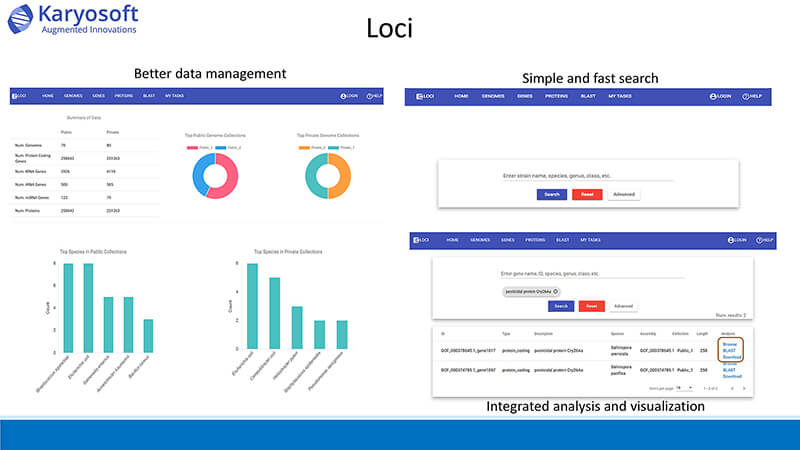[fusion_builder_container hundred_percent=”no” hundred_percent_height=”no” hundred_percent_height_scroll=”no” hundred_percent_height_center_content=”yes” equal_height_columns=”no” menu_anchor=”” hide_on_mobile=”small-visibility,medium-visibility,large-visibility” class=”” id=”” background_color=”” background_image=”” background_position=”center center” background_repeat=”no-repeat” fade=”no” background_parallax=”none” enable_mobile=”no” parallax_speed=”0.3″ video_mp4=”” video_webm=”” video_ogv=”” video_url=”” video_aspect_ratio=”16:9″ video_loop=”yes” video_mute=”yes” video_preview_image=”” border_size=”” border_color=”” border_style=”solid” margin_top=”” margin_bottom=”” padding_top=”” padding_right=”” padding_bottom=”” padding_left=””][fusion_builder_row][fusion_builder_column type=”1_1″ layout=”1_1″ spacing=”” center_content=”no” link=”” target=”_self” min_height=”” hide_on_mobile=”small-visibility,medium-visibility,large-visibility” class=”” id=”” background_color=”” background_image=”” background_position=”left top” background_repeat=”no-repeat” hover_type=”none” border_size=”0″ border_color=”” border_style=”solid” border_position=”all” padding_top=”” padding_right=”” padding_bottom=”” padding_left=”” margin_top=”” margin_bottom=”” animation_type=”” animation_direction=”left” animation_speed=”0.3″ animation_offset=”” last=”no”][fusion_text columns=”” column_min_width=”” column_spacing=”” rule_style=”default” rule_size=”” rule_color=”” hide_on_mobile=”small-visibility,medium-visibility,large-visibility” class=”” id=””]
WEST LAFAYETTE, Ind. – It may be an unsettling thought for some – but the human body is home to trillions of “good and bad” bacteria, viruses and other tiny organisms called microbes. But the scientific big data communities recognize the value of good microbes because they show promise in curing diseases and improving crop yields.
Purdue University-affiliated startup Karyosoft has now developed a genomics intelligence data management software platform empowering biologists for rapid data mining of sequence data with just a few click tools to understand the vast data of microbes to solve world problems.
“My personal experience is what inspired me to create Karyosoft,” said Rajesh Perianayagam, founder and CEO of Karyosoft. “Our patent-pending web-based SaaS platform called Loci, is like the Google for microbial genomics data.
“We want biologists to use it to transform data into innovations for human health, crop improvement and livestock health. We are in the era of big data generation and I strongly believe if biologists have the right tools that are simple enough to mine microbial genomics data, they will drive innovations faster which is the motivation for developing our technology.”
Karyosoft received awards from the Purdue Ag-Celerator Fund and the Elevate Purdue Foundry Fund, both funds that support the commercialization of Purdue innovations. Perianayagam took part in programs at the Purdue Foundry, an entrepreneurship and commercialization accelerator managed by the Purdue Research Foundation at the Burton D. Morgan Center for Entrepreneurship at Purdue Discovery Park.
[/fusion_text][fusion_separator style_type=”none” hide_on_mobile=”small-visibility,medium-visibility,large-visibility” class=”” id=”” sep_color=”” top_margin=”10″ bottom_margin=”10″ border_size=”” icon=”” icon_circle=”” icon_circle_color=”” width=”” alignment=”center” /][fusion_text columns=”” column_min_width=”” column_spacing=”” rule_style=”default” rule_size=”” rule_color=”” hide_on_mobile=”small-visibility,medium-visibility,large-visibility” class=”” id=””]
Karyosoft was one of the five startups that completed gBETA, an accelerator program, in the spring of this year. Karyosoft also received first prize at the Comeback Capital Bowl competition earlier this year in Youngstown, Ohio, where five Midwest startups pitched their innovations.
The need for such a technology to bridge the gap between the biologists and the data is growing rapidly due to the availability of cheaper next generation sequencing (NGS) technologies allowing generation of huge amounts of genomics data from various microbes. Unfortunately, according to Perianayagam, the focus is not there yet. The huge influx of such data causes challenges to organizations and biologists for storage, management and analyses.
 Karyosoft founder Rajesh Perianayagam created Loci, a web-based, time and cost-saving software solution for microbial genomics data. (Image provided) Download image
Karyosoft founder Rajesh Perianayagam created Loci, a web-based, time and cost-saving software solution for microbial genomics data. (Image provided) Download image
Perianayagam said researching microbiomes is not easy because there are a lot of variables, but due to improvements in methods to sequence DNA, researchers have a greater understanding of the biology, diversity and evolution of microbes. There is still much to learn about these vast communities living in the humans, plants, animals and more. For starters, researchers want to know how many types of bacteria live in and around living organisms and their environment, so as to use that knowledge for improving the quality of life, according to Perianayagam.
He believes Loci can help biologists find answers to many of those questions by directly connecting them with genomics data and helping them to find novel solutions for improvement of crops, animals, humans and overall life.
“Karyosoft focuses exclusively on genomics data management providing high data security, which is our competitive advantage,” Perianayagam said. “Our technology makes complex genomics data mining simple for biologists, who typically lack coding skills, with just a few click tools”
Karyosoft’s technology aligns with Purdue’s Giant Leaps celebration of the university’s global advancements made in health and sustainability as part of Purdue’s 150th anniversary. Those are two of the four themes of the yearlong celebration’s Ideas Festival, designed to showcase Purdue as an intellectual center solving real-world issues.
[/fusion_text][fusion_separator style_type=”none” hide_on_mobile=”small-visibility,medium-visibility,large-visibility” class=”” id=”” sep_color=”” top_margin=”20″ bottom_margin=”20″ border_size=”” icon=”” icon_circle=”” icon_circle_color=”” width=”” alignment=”center” /][fusion_button link=”https://www.purdue.edu/newsroom/releases/2019/Q3/google-of-microbes-could-provide-digital-data-from-bacteria-to-solve-world-problems-in-health,-crops.html” text_transform=”uppercase” title=”” target=”_blank” link_attributes=”” alignment=”center” modal=”” hide_on_mobile=”small-visibility,medium-visibility,large-visibility” class=”” id=”” color=”default” button_gradient_top_color=”” button_gradient_bottom_color=”” button_gradient_top_color_hover=”” button_gradient_bottom_color_hover=”” accent_color=”” accent_hover_color=”” type=”” bevel_color=”” border_width=”” size=”” stretch=”default” shape=”” icon=”” icon_position=”left” icon_divider=”no” animation_type=”” animation_direction=”left” animation_speed=”0.3″ animation_offset=””]ORIGINAL SOURCE[/fusion_button][fusion_separator style_type=”none” hide_on_mobile=”small-visibility,medium-visibility,large-visibility” class=”” id=”” sep_color=”” top_margin=”20″ bottom_margin=”20″ border_size=”” icon=”” icon_circle=”” icon_circle_color=”” width=”” alignment=”center” /][/fusion_builder_column][/fusion_builder_row][/fusion_builder_container][fusion_builder_container hundred_percent=”no” hundred_percent_height=”no” hundred_percent_height_scroll=”no” hundred_percent_height_center_content=”yes” equal_height_columns=”no” menu_anchor=”” hide_on_mobile=”small-visibility,medium-visibility,large-visibility” class=”” id=”” background_color=”” background_image=”” background_position=”center center” background_repeat=”no-repeat” fade=”no” background_parallax=”none” enable_mobile=”no” parallax_speed=”0.3″ video_mp4=”” video_webm=”” video_ogv=”” video_url=”” video_aspect_ratio=”16:9″ video_loop=”yes” video_mute=”yes” video_preview_image=”” border_size=”” border_color=”” border_style=”solid” margin_top=”” margin_bottom=”” padding_top=”” padding_right=”” padding_bottom=”” padding_left=”” admin_label=”More News”][fusion_builder_row][fusion_builder_column type=”1_1″ layout=”1_1″ spacing=”” center_content=”no” link=”” target=”_self” min_height=”” hide_on_mobile=”small-visibility,medium-visibility,large-visibility” class=”” id=”” background_color=”” background_image=”” background_position=”left top” background_repeat=”no-repeat” hover_type=”none” border_size=”0″ border_color=”” border_style=”solid” border_position=”all” padding_top=”” padding_right=”” padding_bottom=”” padding_left=”” margin_top=”” margin_bottom=”” animation_type=”” animation_direction=”left” animation_speed=”0.3″ animation_offset=”” last=”no”][fusion_widget_area name=”avada-custom-sidebar-newsposts” title_size=”” title_color=”#ffffff” background_color=”” padding_top=”” padding_right=”” padding_bottom=”” padding_left=”” hide_on_mobile=”small-visibility,medium-visibility,large-visibility” class=”” id=”” /][/fusion_builder_column][/fusion_builder_row][/fusion_builder_container]
